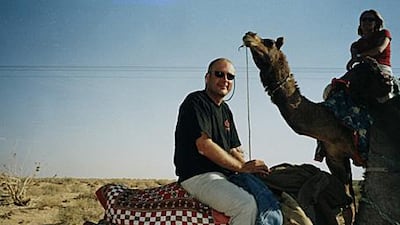I'm one of the founders of the Rough Guide series. After leaving university in 1981, I was working in Greece as a teacher and met Mark Ellingham (co-founder). He was writing a guidebook to Greece (later to become the first Rough Guide) and asked me to help. The book was an immediate success and when we returned to the UK, to avoid getting real jobs, Mark, myself and a small group of writers decided to create a series of Rough Guides that aimed to combine a journalistic approach to description with a practical approach to travellers' needs. We now produce travel guides to more than 200 destinations.
As publishing director I'm responsible for all the company's travel books and making sure the quality is right. I decide which new books we're publishing and when we update the ones we've done. I'm also the outward face of Rough Guides so I have to deal with the media. There's never a typical day for me - my job is a funny mixture of lots of things, all requiring different skills. What I like most about my job is that after 27 years I'm still in touch with the books and am quite hands on. I work closely with the editors and writers and I'm the author of guides to Rome, Italy, Amsterdam and New York, among others. The only thing I dislike is the nitty gritty admin side of things and being a relatively small part of a large corporation.
Advances in communications technology have made my job easier. When we first started out, many of our authors could only be reached by Poste Restante. Now we can easily contact them by phone or email wherever they are in the world. I think the reason Rough Guides became a success is because in the 1980s there weren't many guidebooks as people didn't travel so much - they certainly didn't travel so independently. Existing guidebooks were dry, dull and focused on practical information, with not much about the actual places you were visiting. We've always written the sort of books we wanted to read ourselves - trying to make them interesting and not just purely sources of information. We also tried to inject some humour.
As a travel writer you never start with a blank sheet of paper - the raw material is already out there. The challenge though is to find something new to say about a destination and to give a fresh outlook. You also need to be obsessed by practical details because however well you write about somewhere, if you get your facts wrong someone will complain. I'm based in London but when I travel abroad on business I refuse to stay in five-star hotels, as you could be anywhere. When I was researching the first Rough Guide to Amsterdam I had no money and spent three months living in a tent on the outskirts of the city - I loved it.
I still get a buzz from travelling. I love the feeling of waking up in a new city and knowing it's out there to explore. Eventually I'd like to visit China, Africa and South America - all places I've never been. I try to avoid air travel where possible though as I think airports are hideous. New media has changed the way people access travel information, but I don't believe the guidebook is dead. It will always be a good, portable way of carrying around a lot of information and I think many people will always prefer it.
I'm currently working on a new book entitled Clean Breaks: 500 New Ways to See the World. It's an eco-conscious, responsible book but it doesn't wag the finger at tourists. travel@thenational.ae

